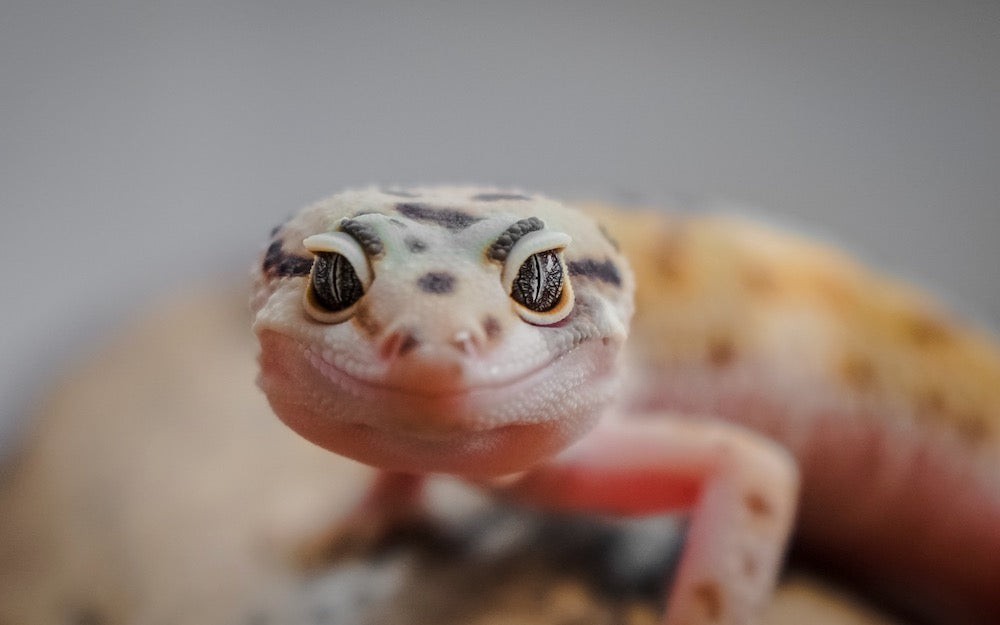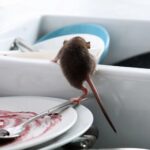Understanding your leopard gecko’s feeding habits is crucial for their health and well-being. A common question among both new and experienced reptile owners is, “How Long Can Leopard Geckos Go Without Food?”. Whether you’re concerned about a new pet’s appetite or an established gecko’s sudden refusal to eat, this guide provides detailed information on leopard gecko feeding schedules and potential causes for a loss of appetite.
Leopard Gecko Feeding Frequency by Age
A leopard gecko’s age significantly impacts its feeding requirements. Here’s a breakdown of how long different age groups can safely go without food:
- Baby Leopard Geckos (Hatchlings: 0-2 months): These rapidly growing geckos require frequent meals and can only tolerate up to 2 days without food.
- Juvenile Leopard Geckos (2-6 months): Juveniles also benefit from daily feeding, but they can withstand up to 7 days without food if necessary.
- Sub-Adult Leopard Geckos (6-12 months): As they approach adulthood, sub-adults can go up to 14 days without food, provided they are healthy and well-nourished beforehand.
When feeding young leopard geckos, ensure the insects are appropriately sized. Hatchlings should be offered insects no larger than 3/8″, while juveniles can handle insects around 1/4″ in length. Overly large insects can deter them from eating.
Adult Leopard Gecko Feeding Habits
Adult leopard geckos (12 months and older) have different feeding needs compared to their younger counterparts.
A healthy adult leopard gecko can survive for up to 1 month without food. However, this doesn’t mean you should intentionally deprive them of food for this duration. Instead, offer food every other day to every three days. Provide a 15–20 minute feeding window with insects like Dubia roaches, crickets, or mealworms dusted with a calcium/vitamin D3 supplement.
 Leopard gecko reaching for food
Leopard gecko reaching for food
Pro Tip: Ensure that the insects you offer are no larger than the space between your leopard gecko’s eyes. This helps prevent choking and ensures they can easily consume their prey.
Why Is My Leopard Gecko Not Eating? Common Causes
If you observe that your leopard gecko has stopped eating, there are several potential reasons for this behavior. Not all of them are cause for immediate alarm, but it’s important to investigate the possibilities.
- Breeding and Ovulation Seasons: During these periods, leopard geckos may lose their appetite as they focus on reproductive activities.
- Brumation: Leopard geckos may enter brumation, a period of dormancy similar to hibernation, where they seek “winter rest” and their appetite decreases.
- Picky Eating Habits: Some leopard geckos are simply selective eaters. Experiment with different types of insects to find their preferred prey.
Other factors that can contribute to a reduced appetite include:
- Stressful Move: Relocating to a new environment can cause stress, leading to a temporary loss of appetite.
- Inadequate Tank Temperature: If the tank is too cold, leopard geckos become lethargic and lose their appetite. Maintain a temperature gradient of 75ºF to 85ºF with a basking area around 90ºF.
- Cohabitation Stress: Sharing a habitat with other leopard geckos can cause stress, especially among males. It’s best to house leopard geckos separately.
- Underlying Disease or Illness: Various health issues, such as parasitic infections, impaction, metabolic bone disease (MBD), and mouth sores, can decrease appetite.
When to Seek Veterinary Care
Leopard geckos store fat in their tails and bodies, allowing them to withstand periods without food. However, if you notice a significant thinning of the tail or protruding backbones, this is a cause for concern. Consult with a qualified veterinarian immediately.
Conclusion
Understanding how long leopard geckos can go without food is essential for responsible pet ownership. By considering their age, health, and environmental conditions, you can ensure they receive the proper nutrition and care. Monitoring their eating habits and addressing any potential issues promptly will help maintain a happy and healthy life for your leopard gecko.
